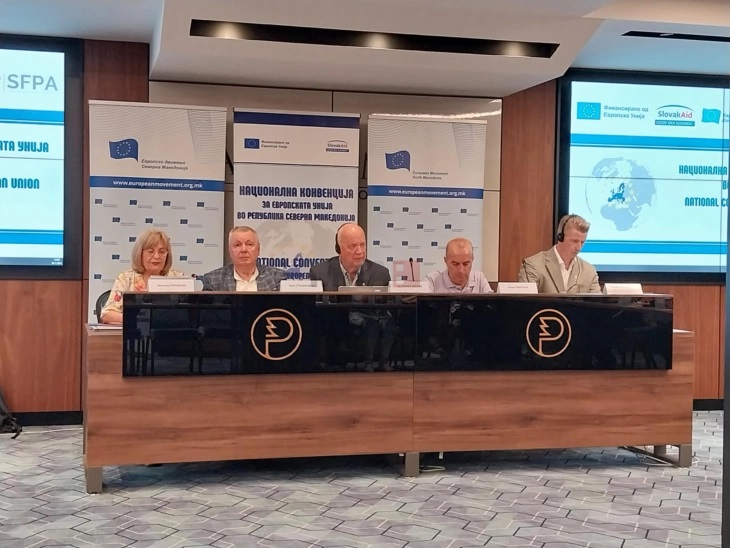Skopje – Transparency, accountability, and integrity are key for police work, and operational independence is also necessary. The integrity of police officers is a significant aspect in gaining public support, which is strengthened through proper conduct of the police towards citizens, and it is recommended that the Ministry of Interior follows EU recommendations for strengthening mechanisms for police conduct with integrity, ensuring transparency in operations. The procedure for the recruitment of new police officers should be protected to guarantee that the most qualified candidates who meet the pre-established selection criteria are included. It is necessary to monitor and improve the integrity test and evaluate whether the permanent solution meets the needs for which the test was introduced.
These are the key recommendations of the National Convention for the European Union in North Macedonia (NKEU-MK) from the 14th session of Working Group 4 “Justice, Freedom and Security” (Chapter 24) on the topic “Through professionalism and integrity to transparency and accountability in police work”.
Professor at the Faculty of Security UKLO – Bitola and expert of NKEU-MK, Trpe Stojanovski, pointed out that the police must be aware that they exist because of the citizens, and the primary competencies of the police are to ensure public order and peace, order, safety and protection of citizens’ property and the service function which is extremely important for the police.
Berner Malme, from the Global Initiative Against Transnational Organized Crime, who has been working in the field of police reforms in the Western Balkans for the past 8 to 10 years, regarding professionalism in the police, emphasized that the leadership must be dedicated to all aspects of professionalism, transparency, and accountability.
– In North Macedonia, we are entering a new chapter, there is a new government, and I heard that they are continuing the same practice as before, by reversing some previous positions, while advancing others, and that is not good if we are moving towards professional standards based on merit, said Malme. He stressed that transparency is an essential issue in police work, and so is accountability.
Public Prosecutor Naum Panoski emphasized that the Public Prosecutor’s Office has a serious and significant role in strengthening and restoring police integrity, especially in the part where a special department has already been formed within the PPO, that is within the PPO for prosecuting organized crime and corruption for prosecuting police officers as perpetrators of criminal offenses.
– In recent years since this department exists, we really have serious cases, we already have quite aligned practices for such criminal offenses and if you look at the law, it clearly defines for which criminal offenses this department can prosecute, that is, public prosecutors from this department and there is a distinction made for criminal offenses committed by police officers within their professional duties colloquially speaking during working hours and outside of working hours, said Panoski.
Mark Dickson, head of the Public Safety and Community Contact Department at OSCE, emphasized the importance of the public service of the police in our societies.
– Police integrity means doing the right thing for the collective good, not for personal purposes. There is a need for police oversight, but more importantly, this is based on the foundations of civilian oversight. Everywhere in the world, every democratic society grants the police unique power, legitimate permission to use force, and the police have the authority to suspend basic human freedoms, thus potentially infringing other fundamental rights, said Dickson. (July 8)
 go to the original language article
go to the original language article
